One of my most favorite scenes in any movie ever is the scene where Forrest Gump runs across America. In a moving cinematography montage, Forrest runs through cities, communities and along desert roads. At times, Forrest ran with crowds and at other times alone.
At no time in the two years that Forrest ran was he ever chased down by people with shot guns. He wasn’t killed because someone thought that he was a burglar running their neighborhood – just because of the color of his skin.
On February 23, 2020, a 25-year old black man named Ahmaud Arbery went running. Two men, a father and son, allegedly got in their truck and chased him down believing that he was a burglar in their neighborhood. A viral video showed the men shooting Ahmaud, killing him.
Those men were not arrested until just yesterday.
Today should have been Ahmaud’s birthday. Across America, people of all races ran 2.23 miles to reflect the date of his murder. Depending on how you curate your newsfeed, you’ve seen #irunwithmaud a lot or a little.
As #irunwithmaud today, I had some time to think about what I wanted to say – or more importantly, why I wanted to say something.
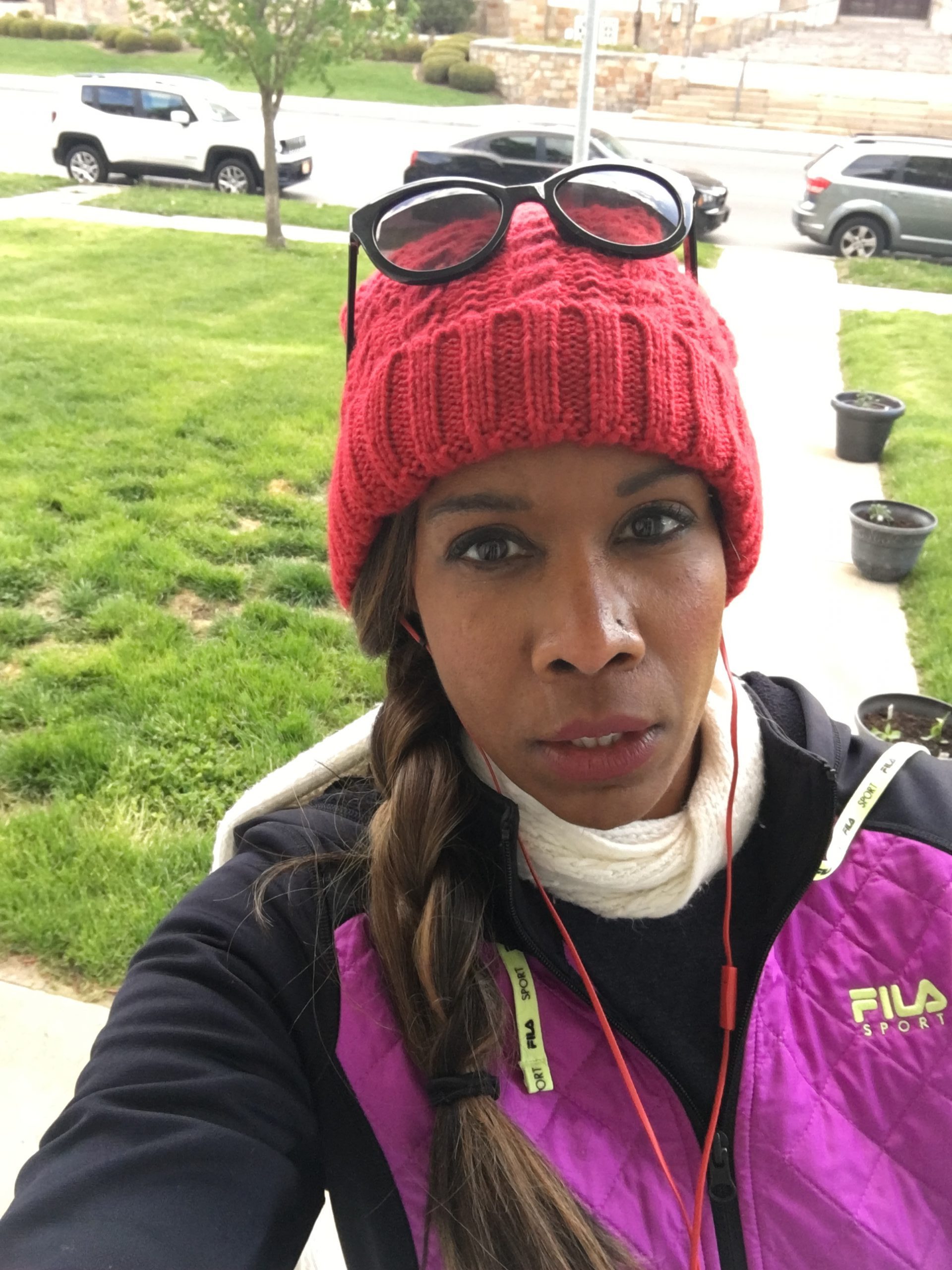
After my #irunwithmaud – I ran. I cried. Then, I wrote this post.
When it comes to dealing with racial incidents, it seems like many of my white friends identify with one of the two responses: “deer in the headlights” or the “staring game.”
The “deer in the headlights” is the feeling that sounds like, “Yikes, I’m stuck because I don’t want to say something to tick white or black people off.” Or, they feel like the staring game hoping that someone else will blink first and say something or do something so that they don’t have to.
Maybe I can help. I don’t know. I’m going to try. However, what I’m going to talk about AND ask you to think about will be uncomfortable. But, since people are STILL getting murdered in the year 2020 for the color of their skin, I think that you can handle being a little uncomfortable if you’re willing to be a part of making life better for us all. (UPDATE 5.27.20 – Since I wrote this post, George Floyd was suffocated to death by police officers in Minneapolis.)
Here are common questions that I see majority culture asking over and over again whenever a black person is killed because they were black. I don’t know what questions you might ask or hear others ask, but here they are:
- Why did he/she do to cause the cops/another person to shoot or kill them?
Perhaps, you could ask a different question like: “Why did the person who killed him/her believe that they had the right to take their life?”
Another question you could ask is, “Why are people still being killed because of their skin color?”
Here’s one more: “Why is the knee-jerk reaction to rationalize or look for a fault with the dead black person and not the white person that killed them?”
I’ve often heard people say, “Well, if some of those people weren’t committing a crime in the first place, then they wouldn’t have put themselves in danger.”
Perhaps you want to consider this question – since people of all colors and cultures commit crimes, not just black people: Why does arrest seem to come with a higher risk of death for black men than the rest of the population?
- Why do black people insist on “Black Lives Matter”? Don’t all lives matter?
Yes, all lives matter. Black Lives Matter doesn’t diminish the perspective that all lives matter or propose that black lives are more important. It’s a crowd cry for people to recognize black people die more for being black than white people die for being white – and black people want to call attention to that.
Imagine if you’re at a backyard party of 100 people (spaced 6’ apart these days) and twelve of the people in the crowd are black – which is about the percentage of African-Americans in America.
Suddenly, an Confederate flag-wearing intruder with a gun busts into your party. You see him looking for people to shoot. Trust me, you’re not going to be as concerned as the black people in the crowd. The black people will dive for cover behind you because know that they’re way more at risk of death.
There’s a community where I live and to this day, I know that I cannot drive through that community without making sure that I know exactly where my drivers license is at AND my hands are for sure at 10 o’clock and 12 o’clock on my steering wheel. Why? The reputation in that community is that my black life is a threat to the other lives. My life matters less there.
Black lives matter isn’t excluding other lives, it’s simply advocating for our lives because our lives are too often in danger.
- “Why do “they” try to make white people like me feel guilty? I haven’t done anything.”
If you get the feeling that black people in America are angry, you maybe right. But, I’m going to ask that you not take it personally and ask, “Have I really taken the time to talk to people to find out why they feel this way?”
While it’s true that this whole thing isn’t about you, the fact is that you are definitely a part of it.
There’s no simple way to explain such a complex problem as racism, but here’s a short video that may shed some light things.
Just watch. You don’t have to agree, but listen and ask yourself, “Even if this video is only 25% or 50% right, what does this mean?”
4. “Barb, I have black friends so why are black people calling people like me racist?”
The following questions will be uncomfortable. But, important for you to do a temperature check on your own life. These questions aren’t a test of racism, but whether or not you may have some blind spots when it comes to the topic of racism and prejudice that you may need to intentionally address:
- How many black families live in your neighborhood? If there are none, are you comfortable with that? If a black family moved into your neighborhood, what would really happen?
- Have you ever recommended one of your friends for a job? Now, have you ever recommended a person of color for a job?
- If you are senior level management or above, how many your colleagues are African-American? If there are only one or two people, why is that?
- How many days in a week will you go without having a real conversation about life with a person of color?
- Have you ever sat down and really listened to a black person tell his or her story of facing racism?
- “Okay, Barb, what do I do now?”
This morning, I received texts about the Ahmaud Arbery murder from three precious friends text:
“That young man is the face of people that we love.”
“It’s unbelievable. It’s devastating. It shouldn’t be this way.”
“I don’t even have words…but I am with you guys.”
These texts meant so much to me. I treasure that my white friends took the time and cared enough to acknowledge what was happening.
They didn’t minimize, try to explain the event away or justify the shooters. They were just present in a pain that black people across America feel all too often.
So, what can you do?
Two things: SHOW UP AND SPEAK UP
- If you’re married, perhaps you should have hard conversations with your spouse about where you live – and if you’re okay with why your neighborhood looks like it does.
- When you see people undermine the dignity of people of color, speak up. Actually say the words: “We are not treating _____________ with the same respect/kindness/dignity like we would treat each other and we need to change that now.”
- At your job, be intentional about recruiting people of color isn’t favoritism. At a certain level of your organization, chances are that people of color are being overlooked way more than they are being recommended. You can level the playing field.
- Plant intentional seeds in your children’s hearts by bring people of different races into your home and sitting around a socially distanced dinner table with them.
- Finally, SPEAK UP. People of color can scream all day long about injustice, but we do not have the level power nor the authority to influence at the level where both hearts and the justice system needs to be changed. That ball is in your court.
COMMENTS: How do you feel after reading this? Are there are questions or struggles that you have when it comes to talking about race?

Need a first next step?
You can start here! My (g)race project page assembles several of the race, grace and gospels resources that I’ve written, recorded or recommended over the years. If you want to hear my story and explore how you can seek healing, justice and unity in our churches and world, click the button below to get started!
BOOK RECOMMENDATION
If you want to gather up some friends for a book club or a summer small group, I have a resource for you. Last year, I had the privilege of endorsing Black & White: Disrupting Racism One Friendship at A Time.
It was written by two former staffers at Andy Stanley’s NorthPointe Church: Teesha Hadra, an African America and John Hambrick, a Caucasian. They formed an enduring friendship while they worked on staff and decided to write the book.
The book was a win for me because at the end of every section, there are AMAZING discussion questions that would provide from some great group discussion. P.S. This book is also likely the only time in my life when my name will be above Andy Stanley’s – ha!
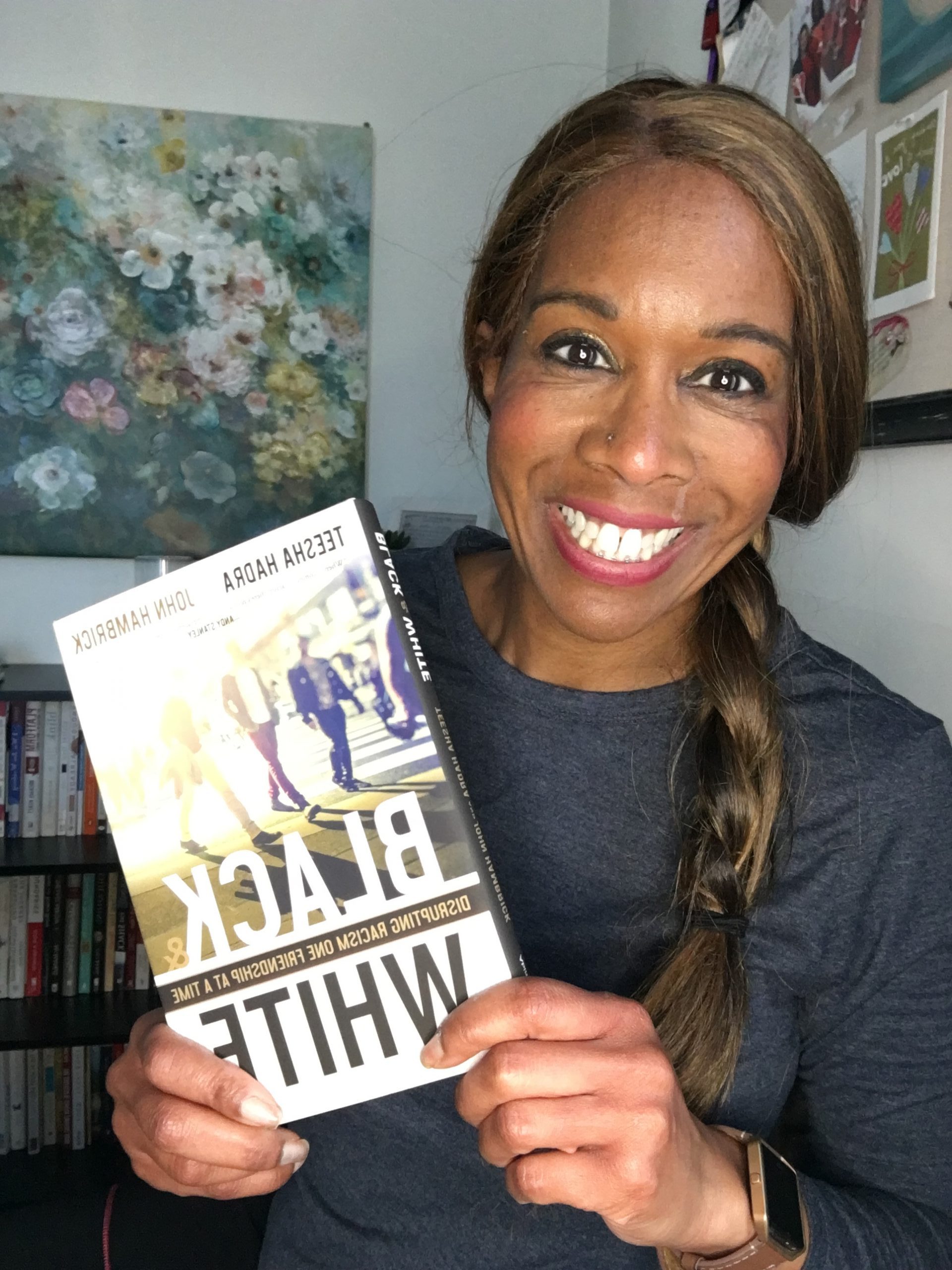
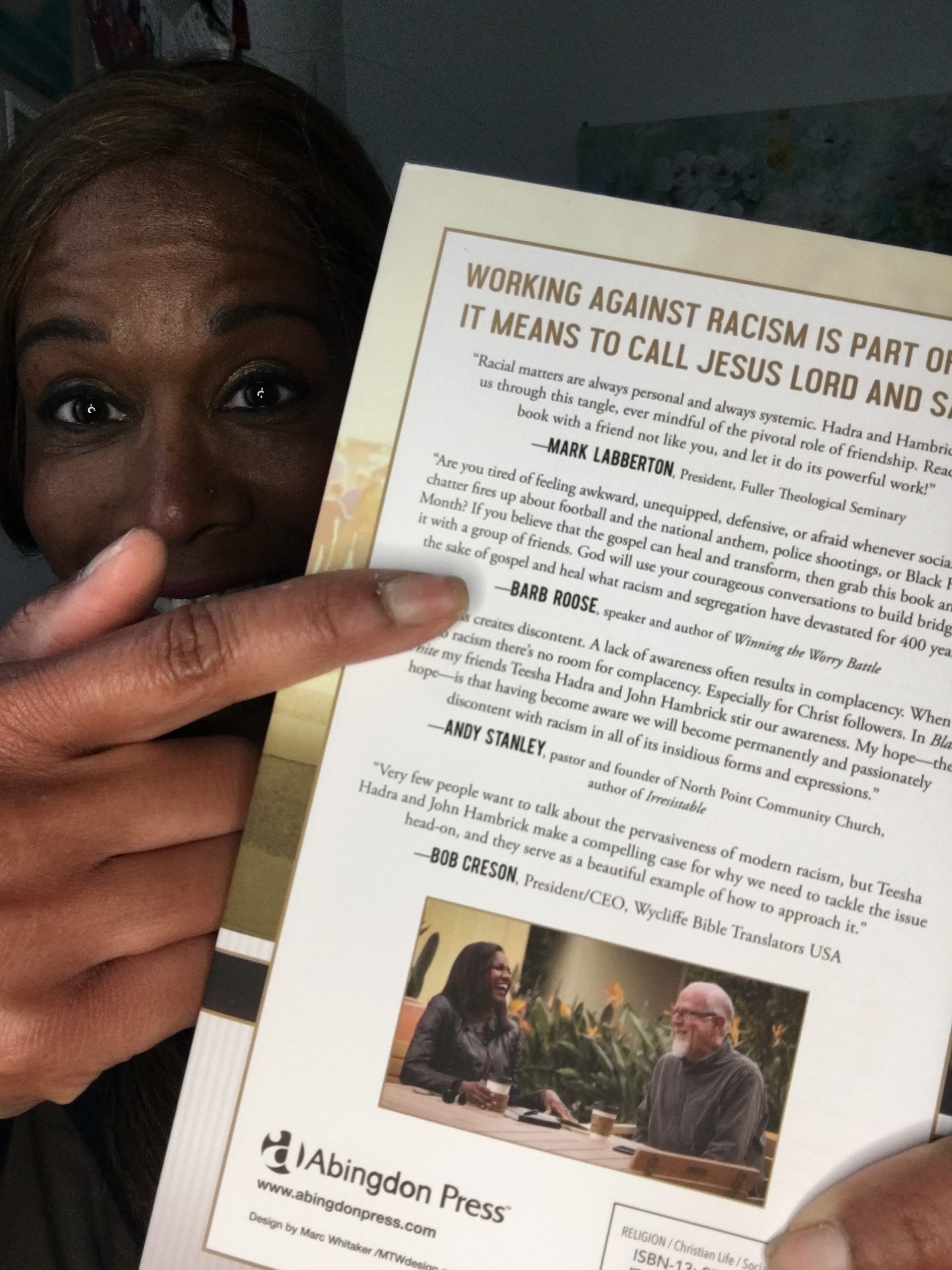
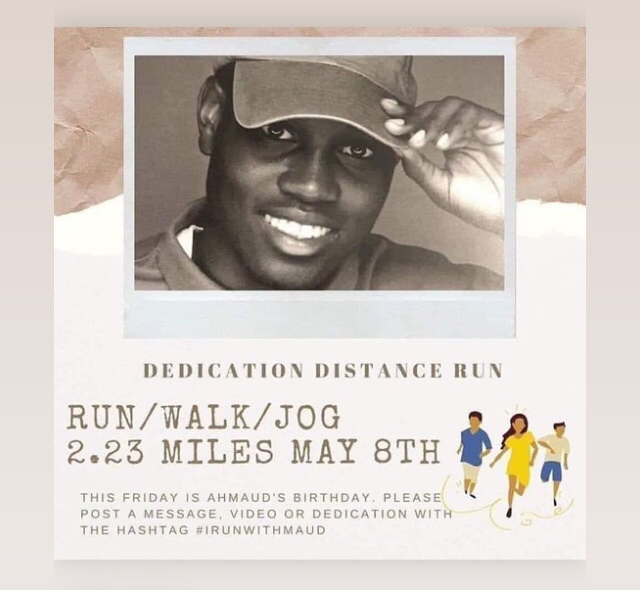
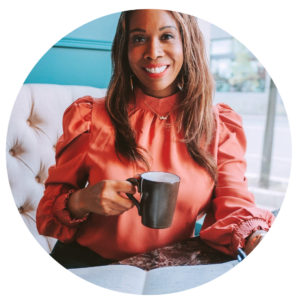
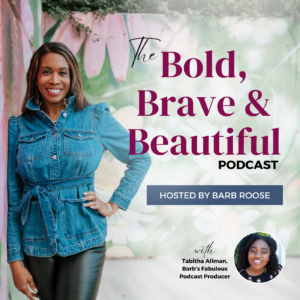
I so appreciate your calm, well-thought out perspective, Barb, as well as the recommended resources. This is such a tragedy, a horrific tragedy. We need things to change, but they can only change if we engage with one another honestly, instead of looking away.
Beth, thank you for sharing your comment – and your care for what’s happening. I love that you point out that change comes only when we engage, not look away. Thank you.
Thank you so much for writing this article, Barb.
Racism is one of the topics that hurts my heart deeply. I want so badly for people to be seen as the people God created them to be…not for the color of their skin (rather, for differences to be cherished and celebrated!)
These conversations are necessary and I look for safe people that are different than me to have these conversations with (I am a redhead who is very light complected). I’m grateful God has put many friends and people in my path to share what I wouldn’t otherwise necessarily know to help teach me.
I look forward to reading that book, thank you for the recommended resource.
My heart hurts for Ahmaud. May his wrongful passing change hearts and bring love to the forefront, canceling out the hate. My heart hurts for my friends of color who live in fear (fear of harm, economic fear, etc)
The hate and discrimination has got to go.
Renee, thank you for your heart-felt words and your desire for differences to be celebrated – as well as our ability to love each other well. Thank you for standing up and being proactive in looking for ways to have these conversations. This is about all of us discovering the gifts of loving each other as God loves us.
I didn’t have the words or the energy to articulate how this incident made me feel. Thank you for being a voice of clarity and perspective, while giving practical next steps.
Kristal, thank you for sharing this comment. This is what showing up and speaking up looks like. Thank you!
The video clip was awesome. We all need to put ourselves in another person’s shoes. When we know better we need to do better., period. We all need to stand up for injustice whenever we see it. If we don’t, in my opinion. we are complicit.
Amber, thank you for sharing this. Yes, we do need to keep putting ourselves in each other’s shoes. So, I applaud your decision to watch the video and to keep thinking about it. Blessings to you!
My heart hurts for these men and their families! I don’t understand how this keeps happening. The cop in Minneapolis had his hands in his pockets while his knee was on George Floyd’s neck. I have worked retail for years and seen bad checks and counterfeit money. It happens. It’s wrong. Nobody should die for it, and Mr. Floyd may not have known the money was counterfeit. I ran for Ahmaud. Thanks for sharing your ideas of how we can move forward.
Jackie, thank you for stopping by to read my post and joining the conversation. I hope that you feel equipped to stand up and speak out.
Barb,
Thank you for sharing and helping to open some eyes. I have some work to do with myself and my girls. Even though I was born into a biracial family and then adopted into another biracial family I am sure that I too am guilty of some blind spots. Thank you for all you do to bring awareness.
Sarah, thank you for sharing your life experience – and your willingness to admit the the possibility of blind spots. That takes great courage. But your courage will no doubt encourage others.
God created all of us. He loves us all equally. Black lives matter. White lives matter. Back in 1957 my grandma needed some work done on her home. She hired an African-American man. So she taught me there was no difference in color. Our world needs to rise together as a family. It is so sad how many hateful people are in our world. LOVE is my word for today. Love each other as we are called to do. My heart is heavy for all families and all who have been taken away through senseless ways. Thank you for this, Barb. You are truly a treasure!
Anita, this is so powerful! What an amazing example that your grandmother set for you. Thank you for sharing this story with us. Love you, friend.
Thank you, Barb. I don’t have words. My heart just aches. As I process through what you’ve written and the way you’ve reframed the sadly, all too common narrative, I will find the right words to engage in meaningful dialogue. Our silence says so much. No more silence and turning away from the uncomfortable, it’s time to show up and speak up!
Melinda, thank you for grieving with us in the midst of this painful and heartbreaking part of our culture. I am grateful for your willingness to courageously speak up and show up to call for change. Blessings to you!
Barb, my heart aches for the right words to say. Saying I’m sorry just does not seem enough. I believe in my heart that racism is taught, if children hear there parents or grandparents, or aunt’s uncle’s chances are they will feel that way. Being full blooded Italian I as a child heard some of my uncle’s use that disgusting word to describe black people. However I am blessed to have had parents who told me that was wrong and to love all people. Thank you for you for your words . Hopefully they will inspire others it did me.
Sal, thank you so much for sharing your family story. Those are courageous words to share – but thank you. I hope that others will be just as courageous in admitting that there were seeds planted that weren’t healthy as well as seeds planted in love for others and unity. This is so good!
Barb,
Thank you for this. “I’m sorry” isn’t enough. Tackling centuries of the sin of racism feels like tearing Mt. Rushmore down by digging with a toothpick.
Despite raising black children, I’ll never have black skin, therefore will never totally understand. But I do know my heart hurts for what racism does to my sensitive, empathetic child and my heart is terrified for my child who carries visible attitude everywhere he goes. I don’t want to bury my child.
Terri, as a mother, your words “I don’t want to bury my child” grip my heart. I have no words, just love and hugs. Racism does like a giant awful mountain, but I still believe that if enough of us stand together we can still overcome it. Thank you for adding your voice – we need to hear you.
Barb,
May I suggest another book? “The Warmth of Other Suns”, by Isabel Wilkerson is about the Great Migration, Jim Crow, and more. (I’m only up to early Jim Crow.)
“Warmth” is written rationally, explaining how the foundations were laid after the Civil War. This book doesn’t try to paint emotional scenarios. The minimum amount of emotion makes the specific incidents even more horrifying, to me.
Absolutely! Thank you for sharing this!
Barb,
Thank you so much for sharing your thoughts and your ideas of how we can start a dialogue with our friends of color and others that we meet and interact with, that they know that we stand with them and support them. In the past I have avoided these topics because they made me uneasy and not sure that I would say the right thing, but I realize now that we have to speak up in love like Jesus would.
Paula, thank you for your kind words. I love that you’re leaning into God’s nudge to stand up and speak out. We’re all in a learning process and perfection isn’t our goal. But your courageous will make a difference. I’m grateful for you!
Thank you for the recommended reading. My daughter is in a mixed race relationship. We know of a least one racist in the family. I’m thinking we may realize there are others. I don’t want to miss the opportunities that will arise to speak truth and denounce the fallacies of racism.
Hi Debi, thank you for stopping by and sharing your comment. Dealing with race is always difficult and sensitive, but I love that you want to keep speaking up and out for your daughter. The book that I recommended is really good and even if family members don’t change, I know that God will keep using your to make a difference.
Thank you for sharing your perspective, Barb!
Kendra, thank you for such for joining the conversation!
Ohhhh my dear friend, I have no words. Well, none that are fit to leave here. I cannot truly fathom what the average African American, and other persons of colour, deals with, and yet with a brown father, I have seen multiple glimpses of pure vitriol.
At the core of who I am, I don’t understand the hate. I do not. Not for a bit. Not for a moment. People all bleed the same shade of red.
Dear Jennifer, I’m so sorry that it’s taken me a day to reply. As you can imagine, the weight of it all felt like too much. I’m so sorry for what you’ve seen and experienced as the daughter of a person of color. I love that you’ve dedicated your life to writing about and bringing dignity to the stories of different color groups. Thank you for standing up and speaking out for change!
It’s so sad that this is still a problem in today’s society. Praying for our country & our world to open it’s eyes with a renewed sense of compassion & love for all people. Thanks Barb for opening up this discussion & highlighting some very important issues.
Jen, thank you for grieving with us. That means a lot. This is painful. Like you, I pray for eyes to be open and willing hearts to call for change.
I’ve never had, what I call, the gift of verbiage. But I’m very logically minded so what has happened to these two black men and to millions of other minorities makes absolutely no sense to me. I don’t see how any of these actions make our community a better place. I hate when people say “studies show” but I recently listened to a podcast about a study done about work place diversity. And how having a group of liked minded, educated and socioeconomic individuals (genius, white, males) stunts the growth, creativity and problem solving ability of the group. While the diversity in the second group gave them the ability to pull from a wider range of experience like cultural and even educational to further them in the experiment.
Back to the logic part, systemic racism makes no sense!! I don’t know how else to say it.
Everybody is better together
Hi Heather, thank you for joining this conversation and sharing your comment! You’re right. Nothing about the brutal loss of life because of skin color makes sense. Yet I love when voices like yours stand up in the midst of the solution and call for change. That’s how we push back against what doesn’t make sense. So thank you.
Barb, thank you very much for taking the time to share your thoughts. The soft grace with which you deliver this much needed message is invaluable and easy to digest. I’ve been able to share it with several people who have in turn shared it and on it goes. Continue to be a light . . . continue to be a voice.
Hi Carla, thank you for your encouragement and support. It means so much to me in a time when it’s really easy to abandon grace. I choose to trust that God is still in control of this situation. If I can help others figure out how to speak up, its only then that changed hearts can transform lives. That’s the only real way that racism will go away.
Thank you for this insightful article. I am sickened by what I see – it needs to stop. And, as you state so well, we are ALL a part of this solution. I appreciated your well thought out ideas on what we can do as well as the questions we need to be asking ourselves and others. We have made some progress but SO MUCH MORE needs to happen. I am taking each of your action ideas to heart.
Lynn, thank you. My friend, you’ve got a long track record of standing up and speaking out. Thank you for for joining this conversation and adding your voice to the call for change. I appreciate you!
I just want to say thank you for this post. I happened upon it thanks to Beth Vogt sharing the link on Facebook. I’m grateful for both the challenge and conviction I feel reading your words and I want to be part of making a true, deep difference. Thank you for the suggestions on how that can happen…and I join the others here in saying I’m sorry for the ugly things you and other people of color have experienced.
Hi Melissa, thank you for stopping over to read this post and to be a part of the conversation. I am grateful that you were willing to take this bold step of standing up and speaking out. Thank you.
Barb, thank you for these words. They give me cause to pause and examine my heart. A heart that hurts over the broken world in which we live. I wish I could go back decades and centuries and right so many wrongs, but I cannot. What I can do is seek to live in peace, and treat with kindness, every image-bearer of God who crosses my path.
Sending a virtual hug from one Compassion speaker to another.
Hi Leah! Thank you for expressing your resolve to stand up and speak out in a way that honors God. Blessings to you!
Thank you! I so appreciate your words spoken from compassion. I have so much to learn. You are right! I still can’t wrap my thoughts around this. Thanks for the resources and encouragement.
Hi Cheri, thank you for stopping by and your honesty. I’m so glad that the blog post gave you a grace-filled space to lean into whatever it is that God wants you to learn. One step at a time!
I so appreciate you taking the time to share and educate even though it’s MY responsibility to educate myself. I appreciate your honesty and sincerity and how it was done with grace yet expectancy. I am sorry for not taking a stand sooner and I’m committed to doing better.
Tammy, thank you for stopping by and sharing your commitment to listen, learn, stand up and speak out. Love it!
Thank you for taking the time to thoughtfully write your blog post. It has given me much to ponder. My heart breaks over what has happened over the past few months. Full disclosure I am in the category of “deer in the headlights”. I’m a 9 on the Enneagram (natural-born peacemaker), and I’m a perfectionist. My motive is love and unity; however, I don’t want to do or say the wrong thing and often end up doing nothing. I’m not making excuses I’m stating facts about who I am and how I respond. Like every person on the planet, I have room to grow and improve.
I’ve been praying for God to give me wisdom about what I personally need to do differently in the future. The holy spirit reminded this morning that God is a God of order (I Corinthians 14:33). Chaos and confusion are straight from the pit of hell. The thief comes only to kill, still and destroy (John 10:10). My prayer is that going forward, I will not be afraid of saying or doing the wrong thing. I will instead take action with the love and grace of Jesus. I will be more proactive, and I hope that those whose skin color is different than mind will show me the same mercy in return even when I get it wrong.
My prayer for our nation is that we: Act justly, love mercy and walk humbly with God (Micah 6:8 )
Dana, first off, I love that you shared your Enneagram number with me right off the bat. That made me feel instantly connected to you 🙂 Thank you for your honesty in admitting where you’re at and the tensions that you’re wresting with. Your courage and vulnerability will definitely be an encouragement to others. Thank you for sharing your journey and how you’re inviting God to lead you. This is so good! Thank you.
(P.S.I’m an Enneagram 3, but sometimes I can look and sound a lot like an 8…)
Coming here from Kathi Lipp’s post today – taking notes and ordering books. Thank you so much for sharing your gentle and wise words. Praying for a better world, starting with my own family.
Hi Shannon, thank you for coming by – and I love your heart attitude to want to listen and learn more. I’m glad that the post was able to provide useful next steps for you on your journey with your family. Blessings to you!
In 1977 or 1978 there was a school trip to Disneyland. I was in 7th or 8th grade. My 2 friends and I were having a great time, doing our Disney thing. But I kept getting the feeling that people were staring at us. About halfway through the day it dawned on me. There were people from all over the world there. Maybe we were an unusual sight for some. I am white. My 2 friends were Black and Hispanic. I laughed and said that all we needed was for our other friend to have been with us (she was Japanese) and we would have been a complete set! We got a kick out of the fact that we were unknowingly representing the great melting pot of America. Here we were, 3 girls of completely different colors and we were the only ones who didn’t seem to notice. I wish things were more like that today. But it also goes to show that racism is learned. It doesn’t just come naturally. While color differences may be visually obvious, they don’t have to have any further meaning than that….unless we give it meaning. It shouldn’t mean any more than wearing different colored clothing. Let’s love the way Jesus loved.
Hi Stephanie, thank you for stopping by the blog today and sharing your story with us.
Hi Barb, I also found my way here via Beth’s blog. Thank you for speaking to us so generously and graciously. You’ve helped me learn more and understand better.
Blessings ~ Wendy Mac
Hi Wendy, thank you for stopping by and reading. I’m glad that you found the post helpful for your journey. And I love that Beth has been so courageous in calling others to stand up and speak out!
Barb, thank you for helping me see life situations from the eyes of the black person. I am at a loss for words with what is going on in the world today. For centuries we have been dealing with racism, injustice and inequality, and yet here we are, still at a loss on what needs to be done to eradicate it. I can’t speak for others, but I know when I hear racial remarks from a friend, or even a family member I stop them, and tell them it is wrong. We have to do better, we must to better, and you are giving us the insight and some ways to do just that. In our closing Hymn today the words struck me more than ever….”We are one in the Spirit, We are one in the Lord, We are one in the Spirit, We are one in the Lord, And we pray that all unity may one day be restored. And they’ll know we are Christians by our love, by our love, Yes, they’ll know we are Christians by our love.” Thank you Barb, in helping us understand, and educating us, and for all you do in Christ’s name.
Hi Marie, thank you for sharing your heart with us in this comment. Thank you for using your voice to stand up when you heard people of color being treated with disrespect. That is courage!
Barb I read this when you first wrote it and just read it again. I’m so glad you decided to not be concerned with people feeling uncomfortable…we need to feel uncomfortable in order to grow and stretch ourselves. We can love better when we understand better. This article is really helpful – thanks for sharing!
Sherri, thank you for stopping by and joining the conversation. Yes, being uncomfortable is an important part of learning and growing. I am grateful for those who decide to be courageous enough to get out of their comfort zone.